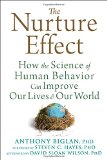new book – ‘Hungry Minds: The Origins of Curiosity in Childhood’ by Susan Engel
March 9, 2015
The Hungry Mind: The Origins of Curiosity in Childhood by Susan Engel (Harvard University Press, 2015)
(kindle ed.), (amazon.co.uk), (UK kindle ed.)
Book description from the publisher:
Despite American education’s recent mania for standardized tests, testing misses what really matters about learning: the desire to learn in the first place. Curiosity is vital, but it remains a surprisingly understudied characteristic. The Hungry Mind is a deeply researched, highly readable exploration of what curiosity is, how it can be measured, how it develops in childhood, and how it can be fostered in school.
Children naturally possess an active interest in knowing more about the world around them. But what begins as a robust trait becomes more fragile over time, and is shaped by experiences with parents, teachers, peers, and the learning environment. Susan Engel highlights the centrality of language and question-asking as crucial tools for expressing curiosity. She also uncovers overlooked forms of curiosity, such as gossip—an important way children satisfy their interest in other people. Although curiosity leads to knowledge, it can stir up trouble, and schools too often have an incentive to squelch it in favor of compliance and discipline.
Balanced against the interventions of hands-on instructors and hovering parents, Engel stresses the importance of time spent alone, which gives children a chance to tinker, collect, read about the things that interest them, and explore their own thoughts. In addition to providing a theoretical framework for the psychology of curiosity, The Hungry Mind offers educators practical ways to put curiosity at the center of the classroom and encourage children’s natural eagerness to learn.
Google Books preview:







